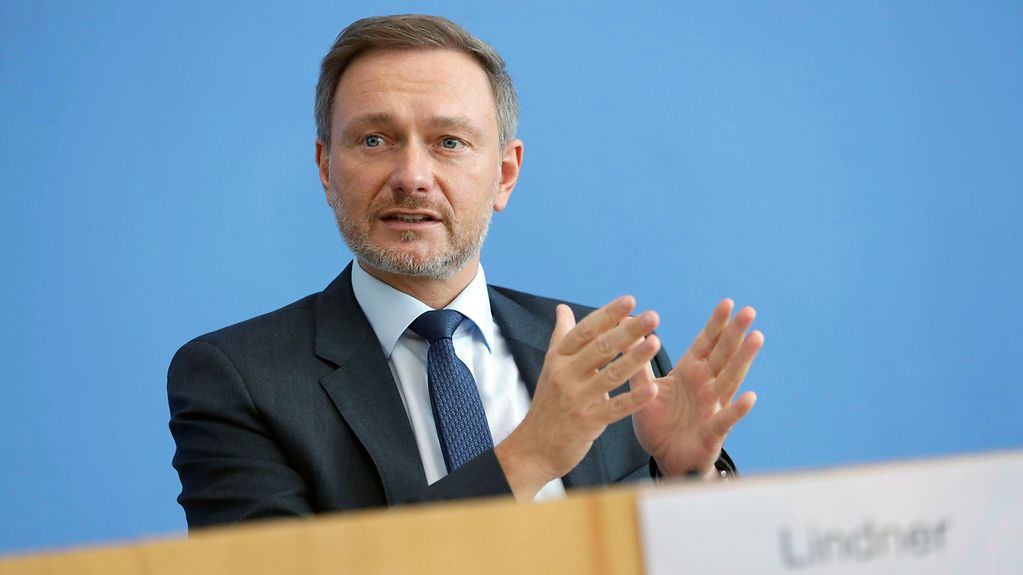Federal budget 2022
It is crucial to ensure stability while retaining flexibility – especially in times of great uncertainty. This is why the Federal Government is focusing on investing in the future. The goal is to transform Germany into a sustainable, climate-neutral and digital economy.
3 min reading time

On Wednesday, Federal Finance Minister Christian Lindner presented the draft budget for this year, with 50.8 billion euros earmarked for investments
Photo: IMAGO/Reiner Zensen
Russia’s attack on Ukraine “has once again fundamentally changed” the situation regarding budgetary policy in Germany, said Federal Finance Minister Christian Lindner at the presentation of the draft 2022 budget. “We now have to assume that the federal budget will face additional expenditure,” he said. But even under these circumstances, it was important for the government to secure stability, retain flexibility and strengthen growth, said Lindner.
How big will the federal budget be in 2022?
The 2022 federal budget provides for revenues and expenditures of 457.6 billion euros – almost 15 billion euros more than estimated in the first draft. It reflects key political priorities set out in the coalition agreement and focuses on investments for the future: climate protection, digitalisation, education and research as well as the infrastructure required. The fiscal situation at the beginning of the legislative period is challenging: the impact of the pandemic continues to weigh heavily on public budgets, so there is limited room for manoeuvre.
What are the priorities of the Federal Government?
The most important goal remains to focus specifically on counteracting the negative effects of the pandemic so as to enable a sustainable economic recovery. Supportive fiscal policy has successfully helped stabilise the German economy over the last two years of the pandemic. This policy is still necessary so as ensure the economy swiftly returns to a path of fast and above all sustainable growth. For this reason, the Federal Government has introduced measures such as an extension of the comprehensive coronavirus aid for companies and the self-employed and has approved a wide range of tax relief measures .
In view of the developments in Ukraine, the Federal Government also attaches great importance to Germany’s security policy interests. Defence spending is therefore to be increased, as are investments from the new Special Federal Armed Forces Fund – with the aim of strengthening self-defence and collective defence capabilities in accordance with Germany’s international obligations as a member of NATO.
The Federal Government is also developing an additional programme to mitigate the financial impact of increased energy costs while at the same time reinforcing humanitarian efforts related to Russia’s attack on Ukraine. It will introduce this programme as a supplement to the 2022 federal budget in the course of parliamentary consultations.
What investments is the Federal Government planning?
Despite the challenging fiscal environment, the Federal Government is providing incentives for investment and innovation to strengthen Germany as a business hub. A sum of 50.8 billion euros is available for investments in the current year – still significantly higher than before the pandemic. Substantial amounts will go into climate protection, digitalisation, education, research and infrastructure.
In addition to spending on environmental protection and digitalisation, the Federal Government is stepping up project funding in the field of microelectronics. It also intends to launch an investment offensive with European partners to support cross-border technology projects.
How will this expenditure be financed?
The impact of the pandemic on the federal budget once again means the Federal Government has to make use of the exceptional emergency exemption under Article 115 of the Basic Law. Even though considerable additional funds were budgeted for pandemic management, it was possible to limit new debt to just under 100 billion euros. From 2023 onwards the plan is to revert to compliance with the regular credit limit under constitutional debt rules.